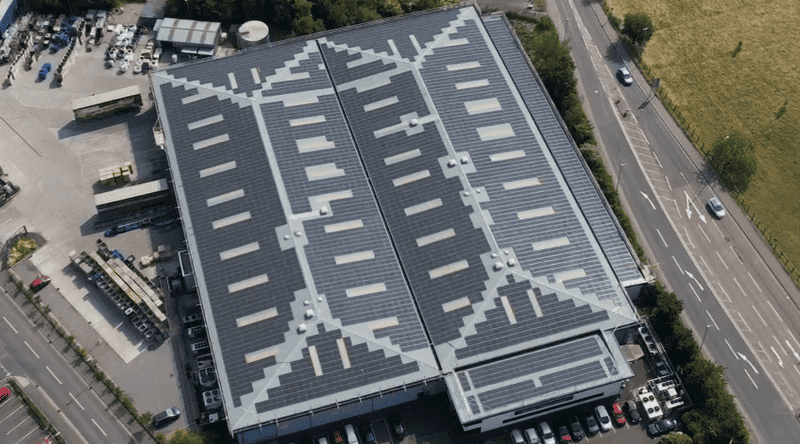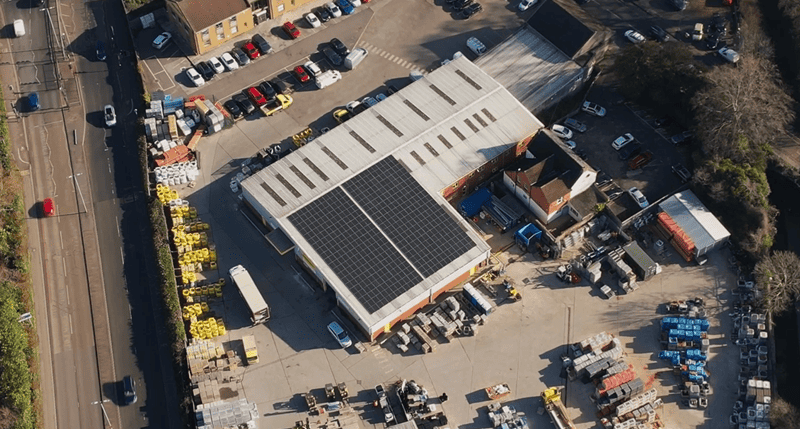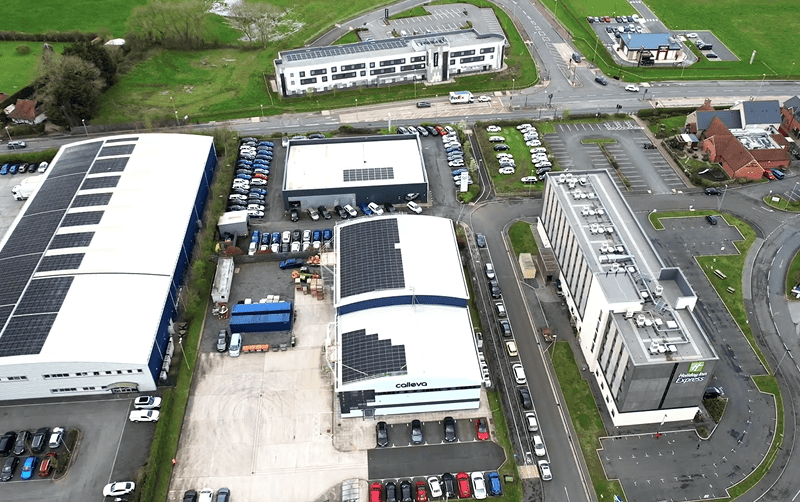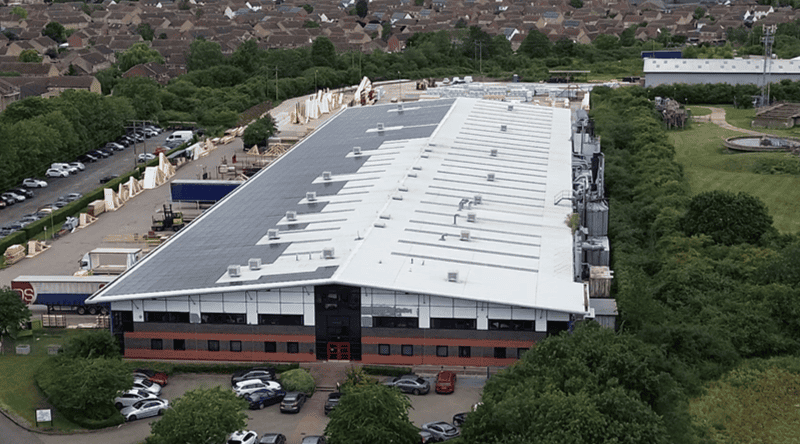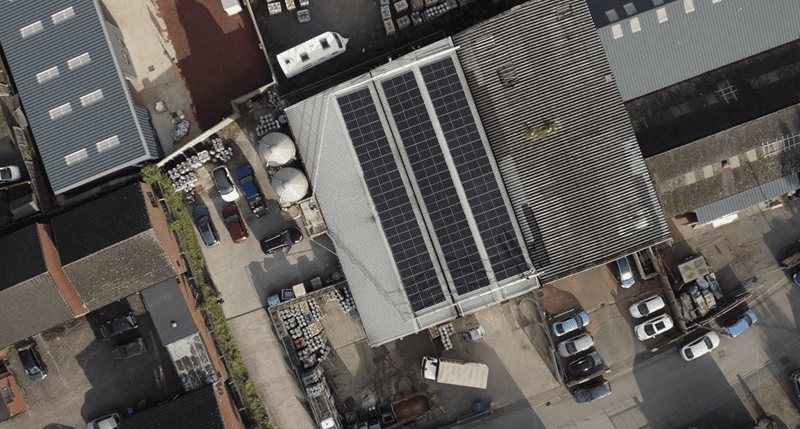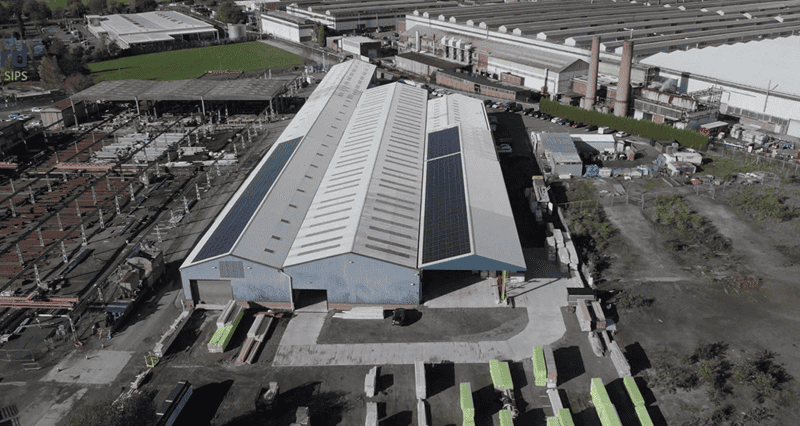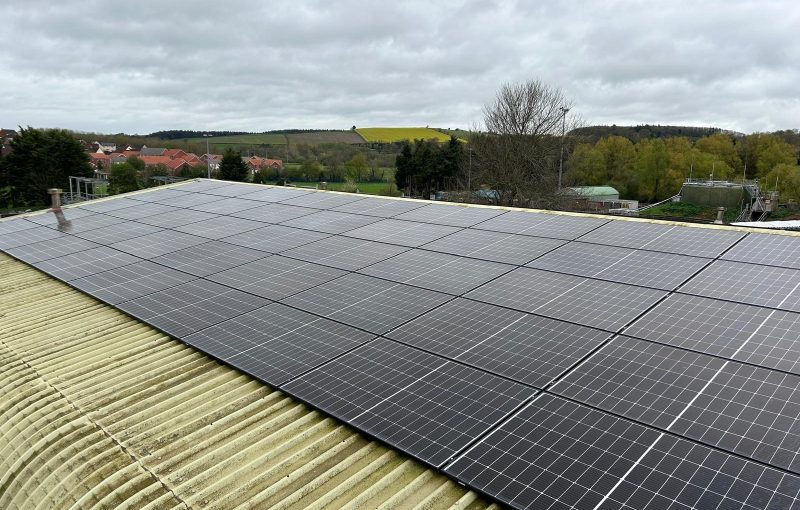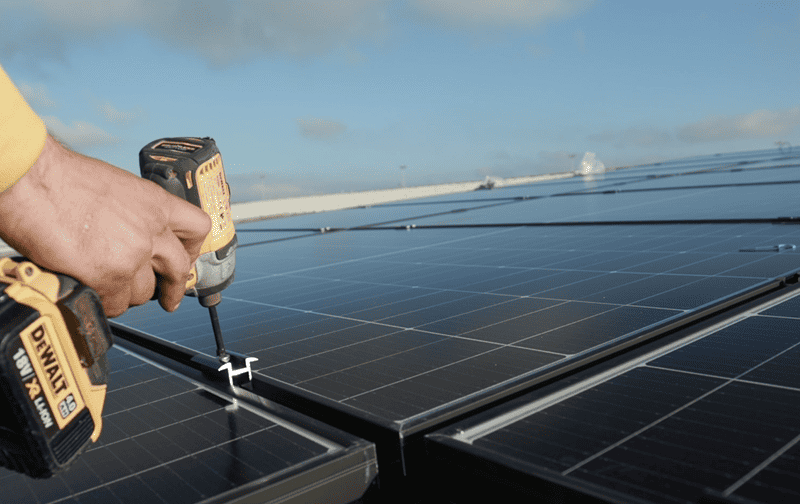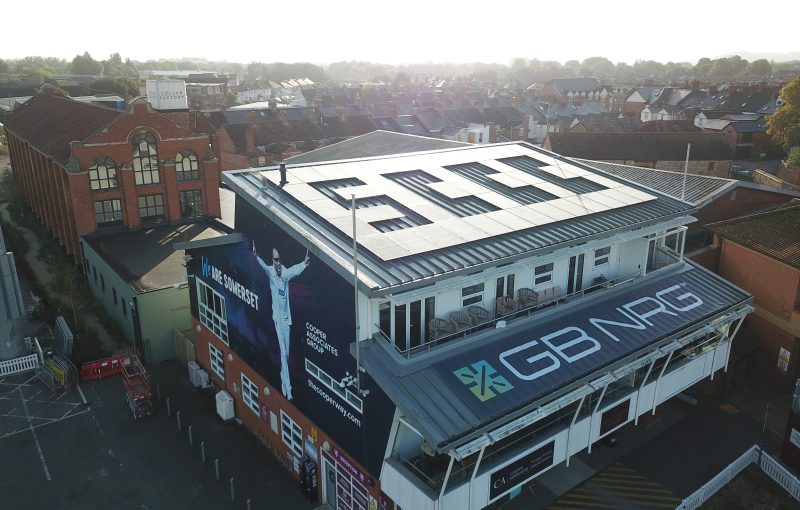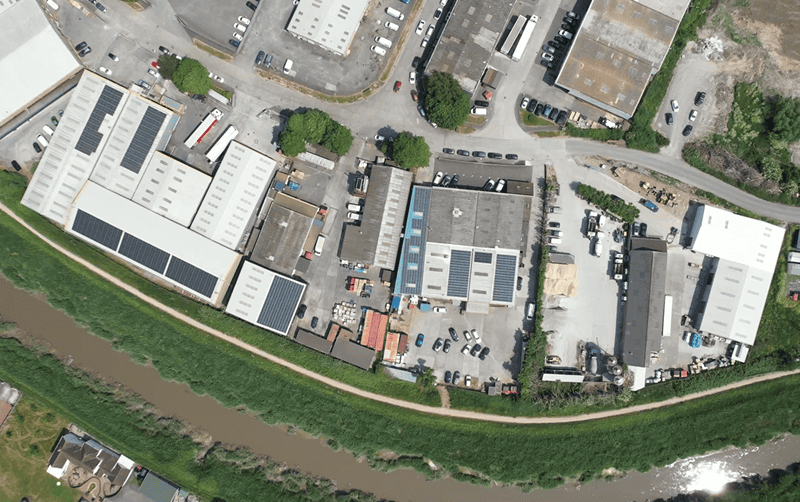The Benefits of Solar Panels
REDUCE OVERHEADS
Produce and store cost-free, sustainable energy on-site, enhancing your financial bottom line with potential savings of up to 100% on electricity expenses
SECURE FUTURE ENERGY
Secure electricity at a fixed unit price before usage, project your long-term energy expenses, and shield your business from future energy price rises
Save Money
Employ sustainable, clean energy to neutralise your companies carbon footprint, decrease reliance on fossil fuels, and minimise pollution
HEALTHY ROI
An average commercial solar panel system offers free electricity for over 25 years, yields returns exceeding 12% annually, and recoups installation costs in 3-5 years
COMPETITIVE ADVANTAGE
A standard commercial solar panel system produces free electricity for over 25 years, with installation costs recouped in approximately 3-5 years
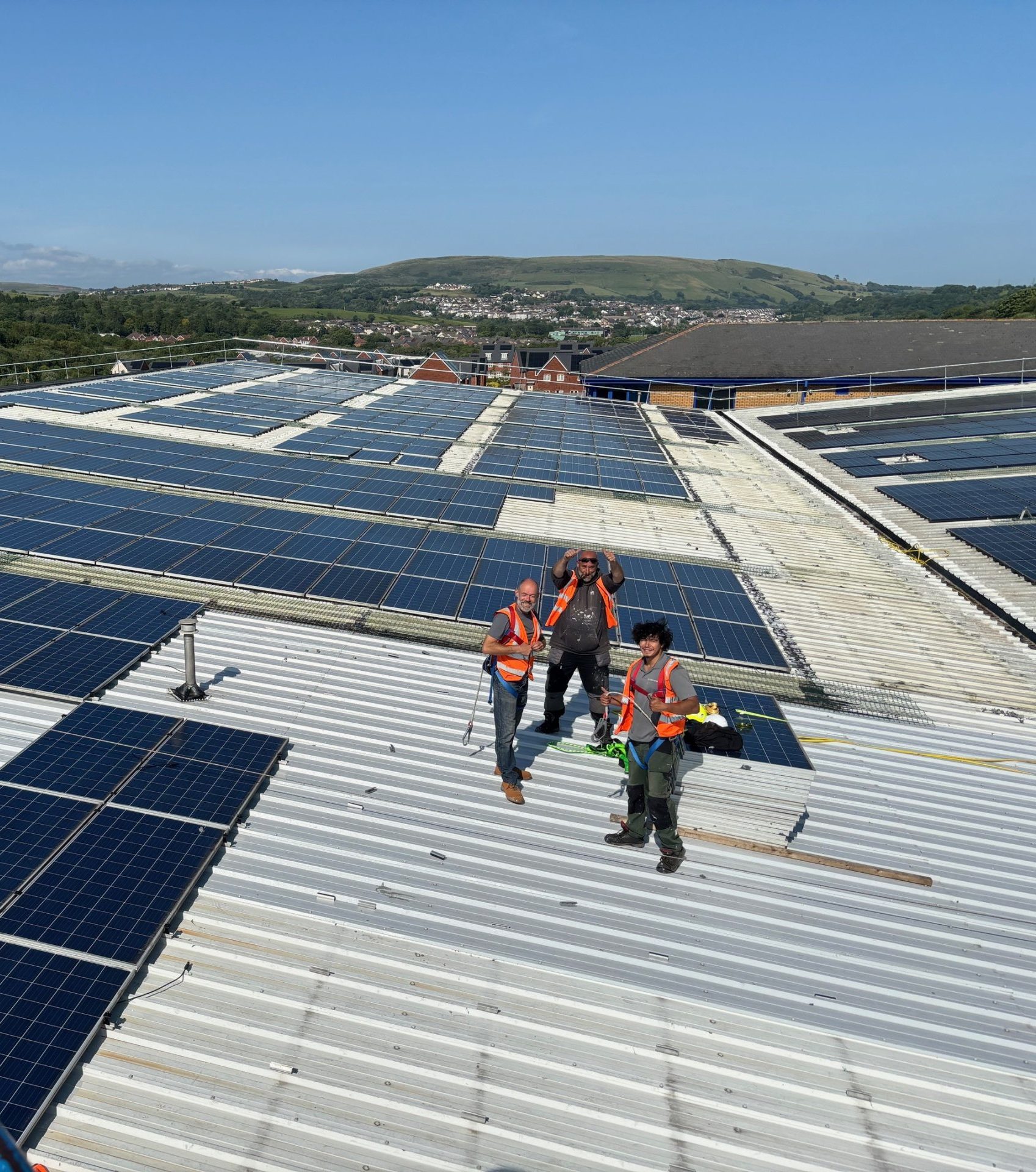
Commercial Solar Panels
UK businesses are increasingly turning to commercial solar panels to cut energy costs, reduce carbon emissions, and take control of their electricity supply. Solar PV systems are no longer just a “green initiative”—they’re a smart business decision.
Key Benefits of Commercial Solar Panels
Installing solar panels on your commercial building brings tangible results:
- Energy cost savings – Businesses can reduce electricity bills by up to 40% through self-consumption of solar power.
- Carbon footprint reduction – Each 100 kW of solar installed saves around 19 tonnes of CO₂ per year, equivalent to planting 850 trees.
- Energy security – Generate your own renewable electricity and hedge against volatile grid prices.
- Return on investment – Most commercial solar projects see ROI within 3–5 years, with systems lasting 25+ years.
- Brand image and sustainability – Over 60% of UK customers prefer businesses demonstrating environmental responsibility.
- Future-proofing – The UK aims for 47 GW of solar capacity by 2030, and early adopters gain competitive advantages.
Case Studies and Real-World Examples
At GB NRG, we deliver commercial solar solutions that make a measurable difference for businesses across the UK. Our installations help companies save on energy costs, reduce carbon emissions, and strengthen sustainability credentials.
Crendon Timber Engineering Group
We partnered with Crendon Timber Engineering to install solar photovoltaic (PV) systems across 18 of their UK sites, creating a portfolio of over 2MW, which is one of the largest in the UK timber industry. This project significantly reduces Crendon’s carbon footprint and energy costs, showcasing the environmental and economic benefits of commercial solar installations and setting a new sustainability standard for the timber industry.
Bradfords Building Supplies
Bradfords Building Supplies partnered with us to install rooftop solar photovoltaic (PV) systems across 14 of their sites. Leading to a four-year ROI, reduction in energy costs and reinforcing Bradfords commitment to clean energy. The project spans 14 locations, from Avonmouth to St Austell, with a total installed capacity of 1MWp.
These examples highlight GB NRG’s ability to deliver tailored, high-performance solar solutions that create measurable energy savings, enhance operational resilience, and boost sustainability credentials for businesses of all sizes.
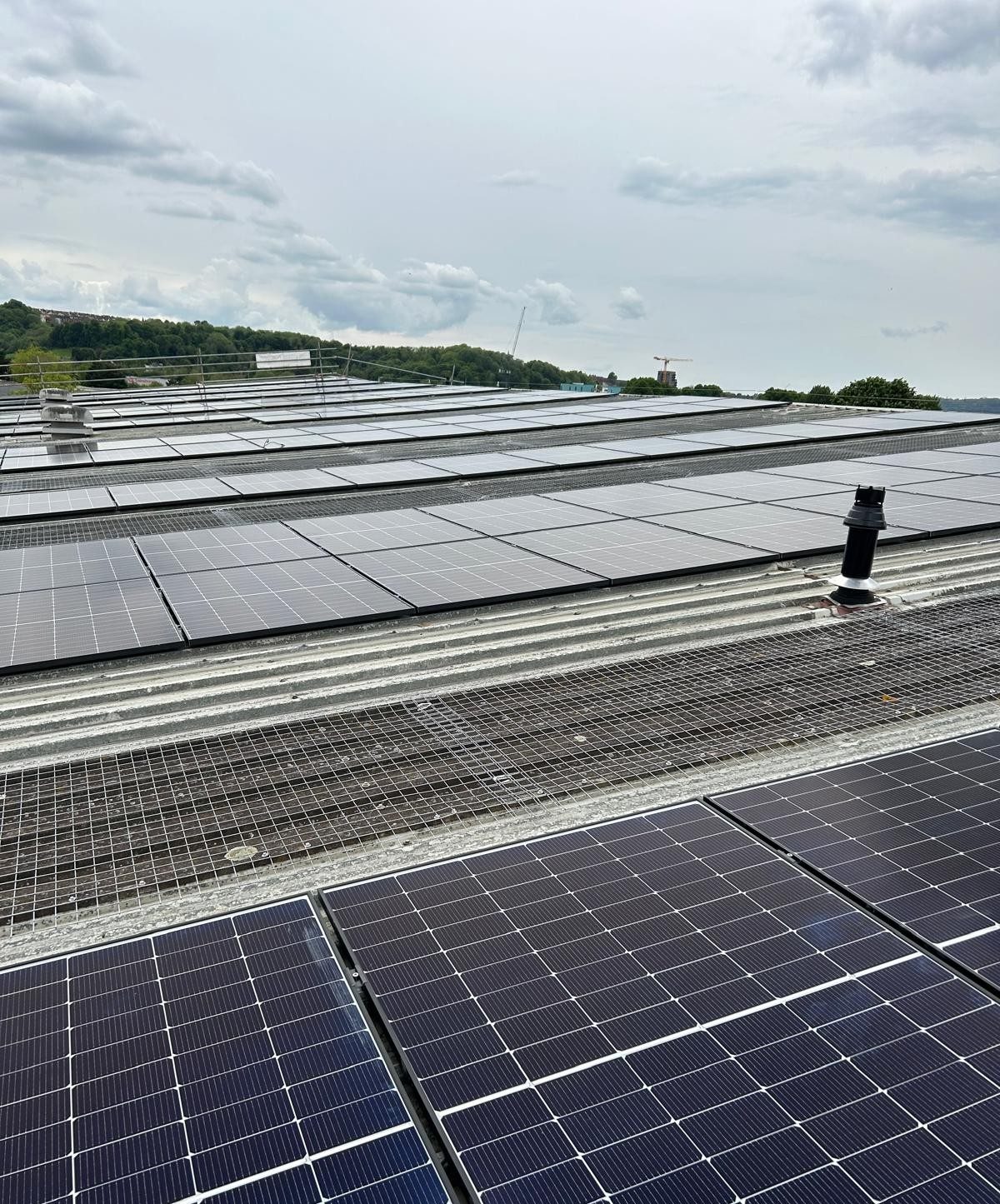
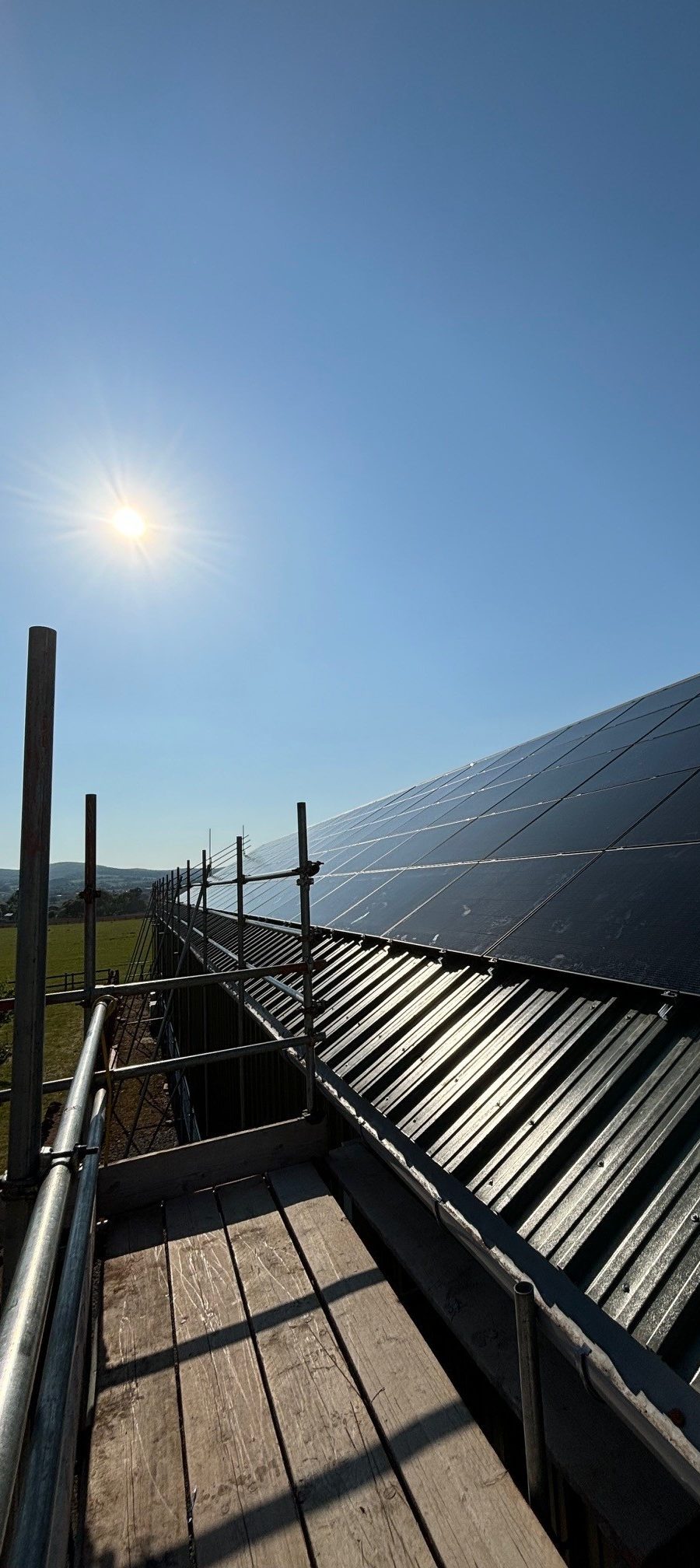
Costs and Financial Considerations for Commercial Solar Panels
Understanding the financial side is key for businesses considering commercial solar panels. While the upfront investment varies by system size and complexity, the long-term benefits can be significant.
Return on Investment and Payback Period
- Commercial solar panels can significantly reduce electricity bills, sometimes covering 25–40% of a business’s energy usage depending on self-consumption rates.
- A properly sized system can achieve a payback period of 3–5 years, after which energy savings directly contribute to profit.
- Systems with higher performance ratios and efficient panels deliver greater energy output, shortening ROI timeframes.
Financing Options
- Many UK businesses take advantage of capital allowance benefits, which allow solar PV investments to be offset against taxable profits.
- O&M packages (Operations & Maintenance) help ensure panels run at maximum efficiency, protecting long-term returns.
- Flexible financing options, including leases, Power Purchase Agreements (PPAs), or loans, make solar accessible without major upfront investment.
Energy Usage and Self-Consumption
- Maximising self-consumption—the proportion of generated electricity used onsite—can increase savings by up to 40%.
Installation and Grid Considerations
- Installation requirements include structural assessments, roof or ground suitability, and proper mounting systems.
- Coordination with your Distribution Network Operator (DNO) is essential to connect safely to the grid.
Projected First-Year Savings
- Businesses can typically expect a return in the first year equivalent to several tonnes of CO₂ avoided, contributing to sustainability targets while improving financial performance.
- Systems designed for maximum efficiency and durability ensure that projected savings remain realistic and consistent over the system’s lifetime.
commercial solar panels
Best Commercial Solar Panels
Selecting the right panels is crucial for performance:
- High conversion efficiency (20%+ typical for top-tier panels)
- Long warranties and proven durability in UK conditions
- Compatibility with battery storage systems and renewable electricity guarantees
GB NRG matches technology to your building for optimal efficiency and output.
Commercial Solar Installers UK
As trusted commercial solar installers, we provide:
- Full feasibility assessment and site survey
- Bespoke system design with either PVSOL or CAD visuals
- Planning and grid connection management
- Professional installation and electrical integration
- Ongoing monitoring, cleaning and maintenance
We work across the UK, ensuring your solar PV system meets all regulations and standards.
Installation Process and Planning
Installing commercial solar panels involves careful planning:
- Site survey and structural assessment
- Feasibility study and energy analysis
- System design and PVSOL/CAD schematics
- Planning permission and DNO approval (if needed)
- Installation and commissioning
- Operations & maintenance planning
GB NRG handles every stage, giving businesses confidence and a smooth project experience.
Maintenance and Longevity
Commercial solar systems require minimal maintenance but benefit from:
- Annual inspections and cleaning
- Remote performance monitoring
- Inverter checks
- Replacement of degraded components
With proper care, panels continue producing efficiently for ~25 years.
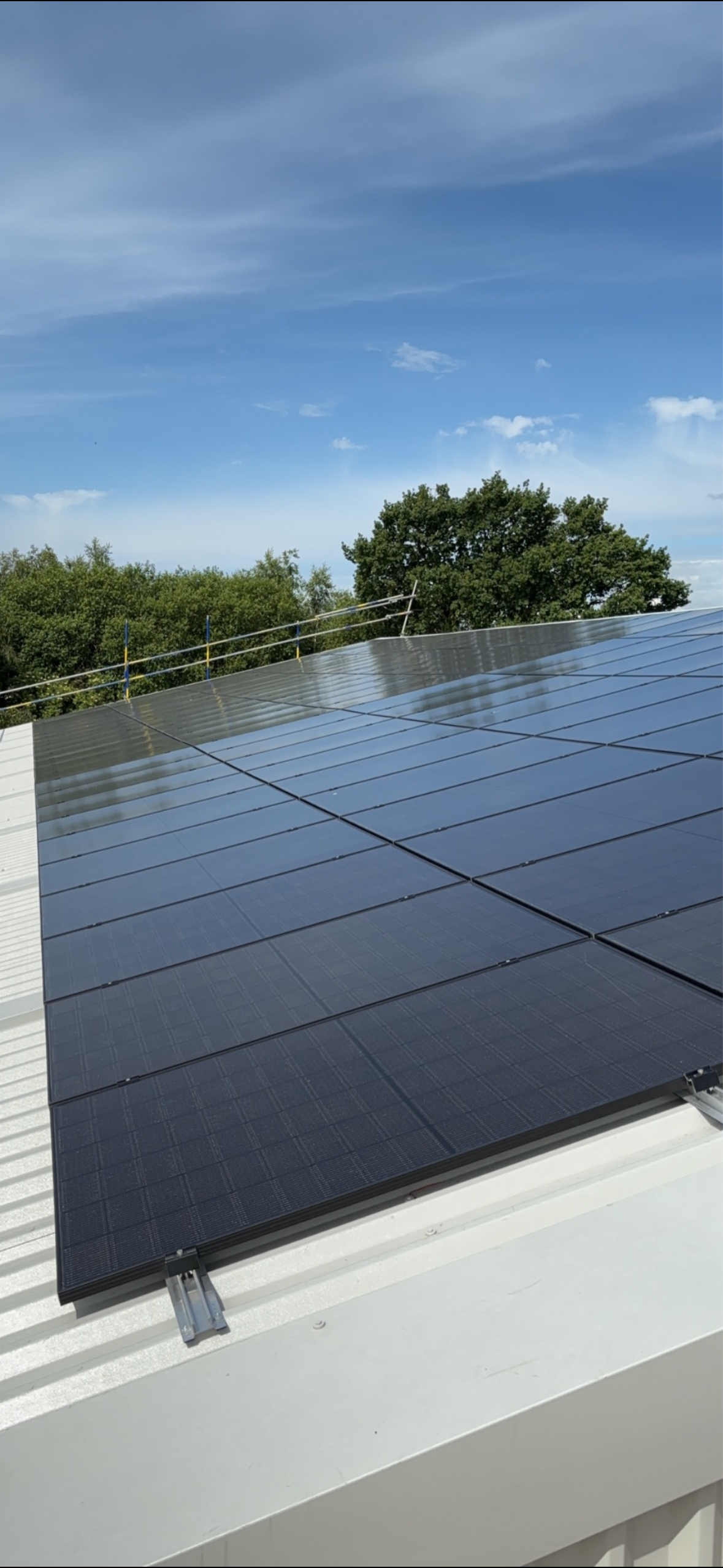
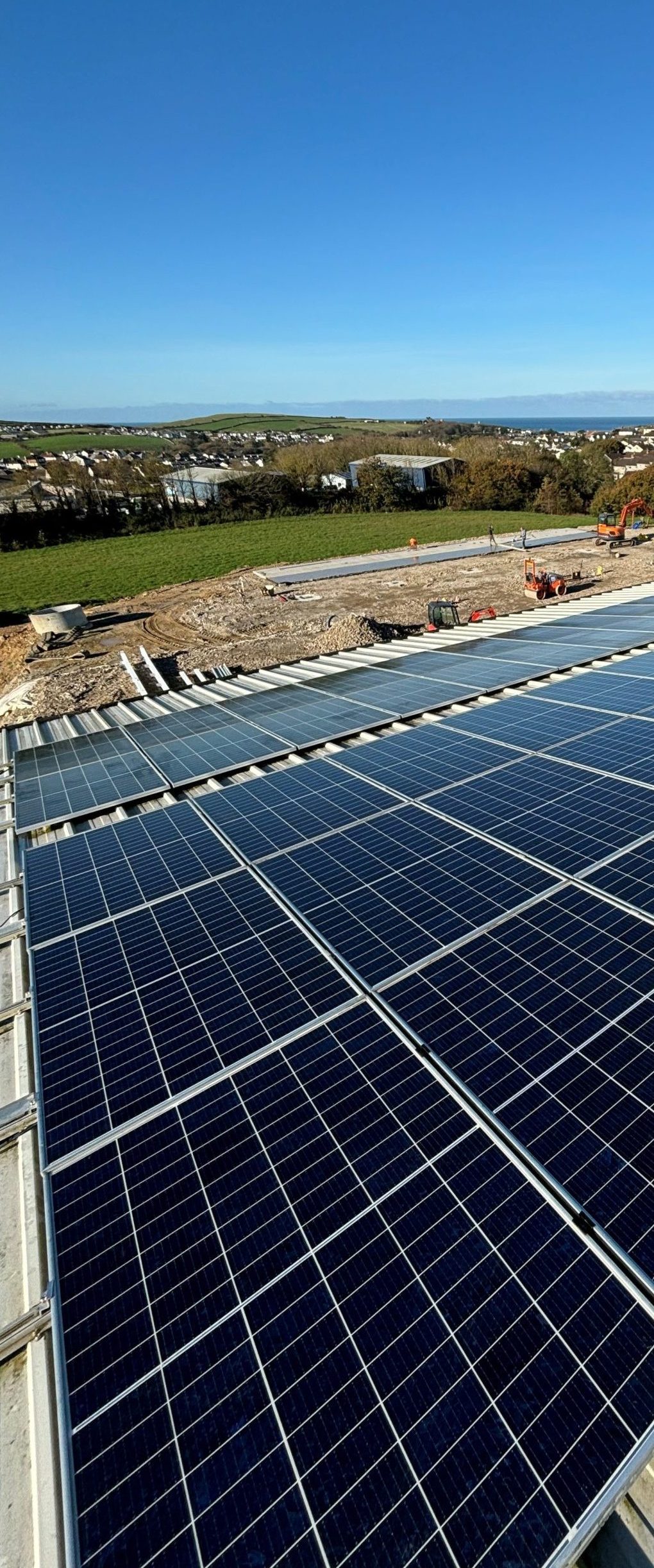
Sector-Specific Solutions for Commercial Solar Panels
Every business has unique energy needs and site conditions, which is why commercial solar panels are designed with flexibility in mind. Tailored solutions ensure maximum efficiency, energy savings, and sustainability for different sectors.
Solar Panels for Factories
- Large-scale industrial roofs can accommodate high-capacity solar PV systems, generating enough energy to offset significant portions of electricity demand.
- Proper structural assessments ensure roofs can safely support panels and mounting systems.
- CAD visuals and schematics help plan optimal layouts for maximum energy yield, while ground-mounted arrays are an option if roof space is limited.
Solar Panels for Farms
- Agricultural sites often have ample land for ground-mounted arrays or mixed-use systems that coexist with crop production.
- Solar PV systems can significantly reduce farm energy bills while providing annual CO₂ savings, supporting sustainability targets and eco-certifications.
- Flexible mounting systems allow panels to be installed in ways that suit irrigation, livestock movement, or seasonal changes.
Solar Farms and Large-Scale Enterprises
- Large-scale solar farms offer multi-megawatt generation, ideal for energy-intensive operations or for exporting electricity to the grid.
- Detailed structural assessments, CAD schematics, and site surveys ensure efficient use of land while meeting regulatory standards.
- These projects contribute substantially to renewable electricity guarantees and corporate sustainability goals.
Key Benefits Across Sectors
- Tailored solutions maximise system efficiency by matching panel orientation, tilt, and layout to site-specific conditions.
- Businesses gain predictable energy savings, enhanced resilience, and a positive environmental impact through annual CO₂ reduction.
- Sector-specific approaches allow for flexible use of space and equipment, whether rooftop, ground-mounted, or integrated into existing infrastructure.
Regulations and Certifications
Commercial solar projects must meet UK regulatory standards to ensure safety, reliability, and compliance:
- Planning permissions – Required for certain rooftop, ground-mounted, or listed buildings.
- Grid connection consents – Coordination with your Distribution Network Operator (DNO).
- Detailed CAD schematics – Ensure installation accuracy and structural safety.
- Structural assessments – Roofs and mounts must support the system’s weight.
- Compliance standards – Panels, inverters, and installations must adhere to IEC and UK electrical standards.
GB NRG handles all regulatory and certification requirements, giving businesses peace of mind.
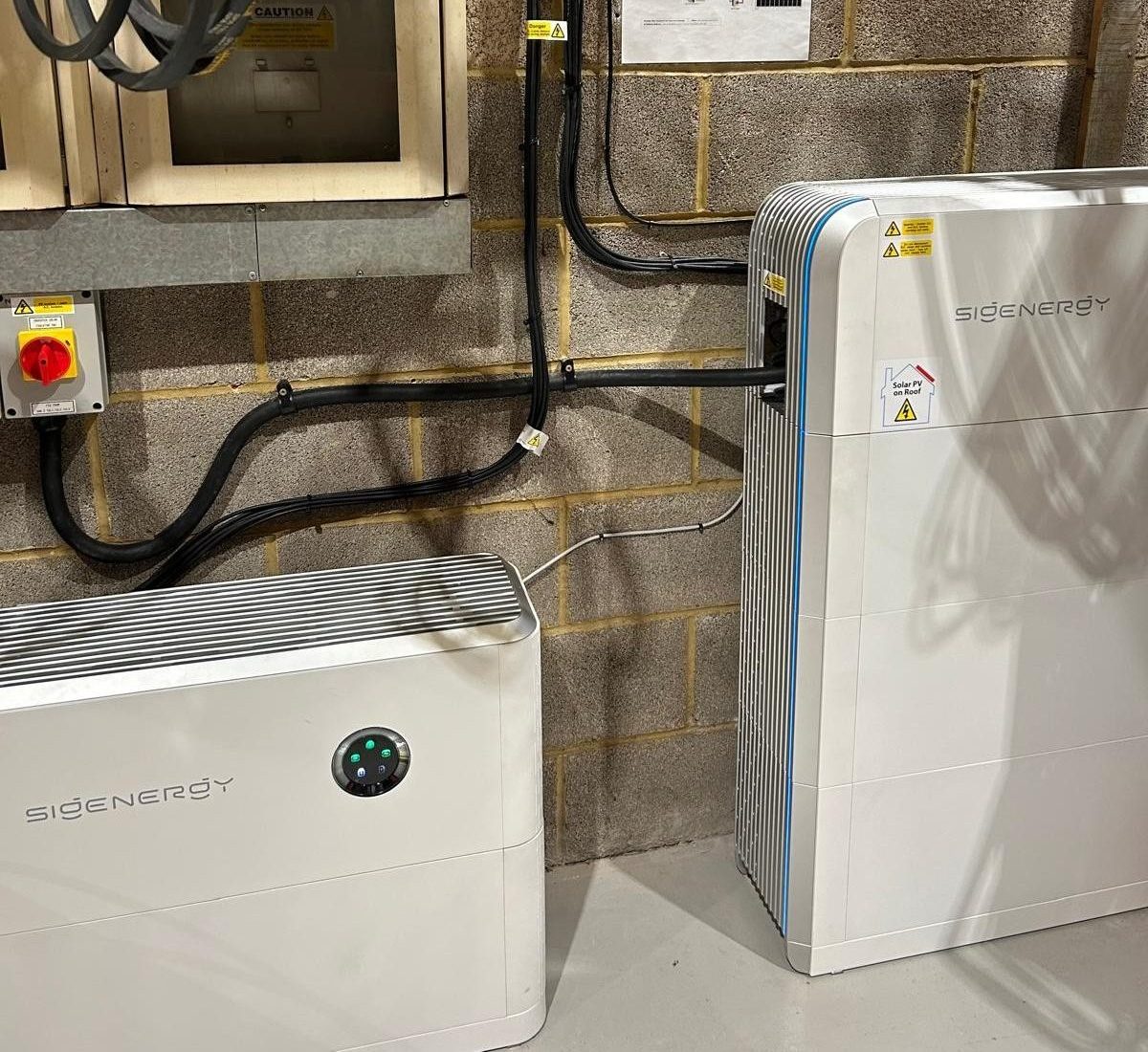
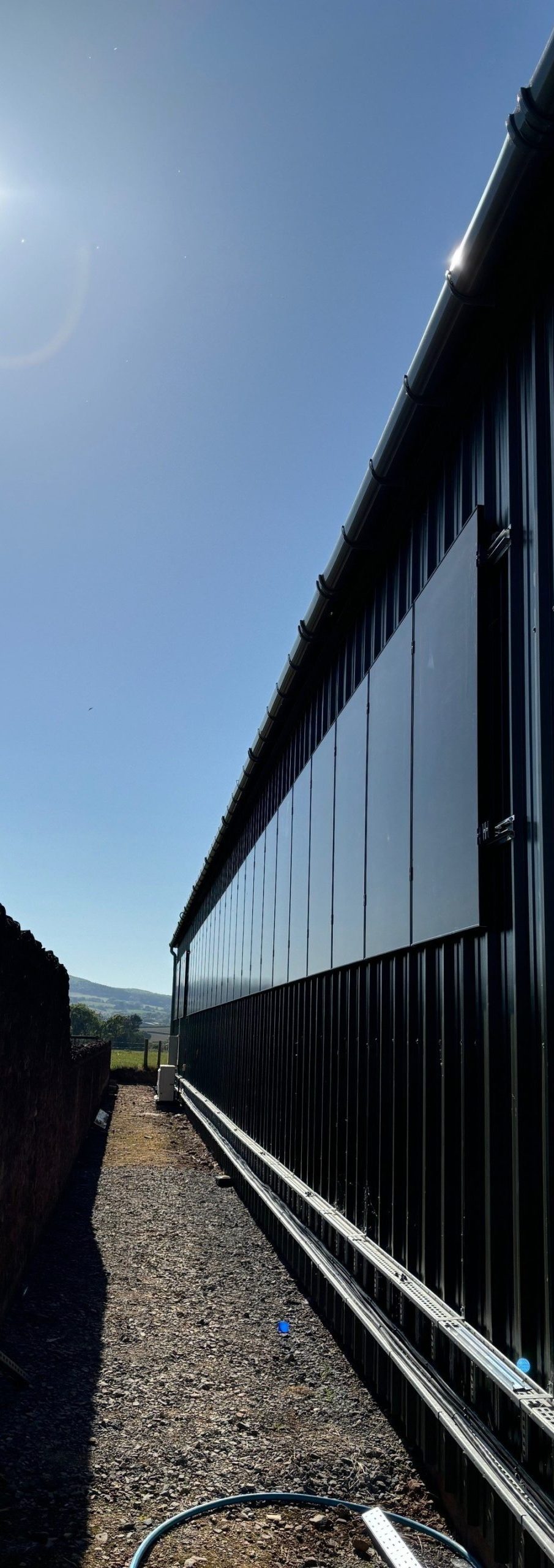
System Components and Technology
A commercial solar PV system is more than just panels on a roof. Each component plays a crucial role in maximising energy yield, system efficiency, and long-term reliability.
Solar Panels and Photovoltaic Cells
- Photovoltaic (PV) cells capture sunlight and convert it into DC (direct current) power.
- Modern commercial panels achieve 20–22% efficiency, meaning more energy generated per square metre of roof or land.
- Durable, branded panels come with ~25 year performance warranties, ensuring consistent output and protection for your investment.
Inverters and AC Power Conversion
- Inverters convert DC power from the panels into AC (alternating current) power, suitable for business operations and grid export.
- String inverters or central inverters are used depending on system size and layout.
- High-quality inverters improve the performance ratio and reduce energy losses.
Mounting Systems and Site Suitability
- Commercial installations use roof-mounted, ground-mounted, or solar carport solutions.
- Engineers assess site suitability, including roof strength, orientation, shading, and structural integrity, ensuring safe and efficient installation.
- Versatile mounting systems allow for optimal tilt angles to maximise solar exposure year-round.
Controllers and Safety Isolators
- Controllers regulate energy flow between panels, inverters, and optional battery storage.
- Safety isolators protect personnel and equipment during maintenance or emergencies.
- These components ensure compliance with UK electrical standards and long-term operational safety.
Monitoring Systems and Generation Meters
- Digital monitoring systems track energy yield, system efficiency, and panel performance in real time.
- Generation meters measure output and help businesses optimise self-consumption and SEG payments.
- Remote monitoring allows for proactive maintenance, reducing downtime and protecting ROI.
Optional Battery Storage
- Solar batteries store excess energy for use during peak demand or at night.
- Battery integration increases self-consumption rates, which can improve energy savings by typically up to 30% for many businesses.
- Storage solutions also enhance energy security, ensuring uninterrupted power during grid outages.
System Efficiency
- A well-designed commercial solar PV system combines all components to maximise efficiency and longevity.
- Proper sizing, high-quality components, and professional installation ensure optimal energy generation, reduced reliance on the grid, and predictable financial returns.
Commercial Solar Panels
FAQS
Businesses often have specific concerns when considering commercial solar panels. Here are answers to the most common questions:
1. What size solar PV system do I need for my business?
System size depends on your electricity usage, roof space, and energy goals. Most UK warehouses and factories install 100–500 kWp systems, with larger buildings requiring over a MW.
2. How efficient are commercial solar panels?
Modern commercial panels have efficiencies of 20–22%, meaning they convert up to 22% of sunlight into usable electricity. Efficiency affects energy yield and ROI.
3. Are branded solar panels worth the investment?
Yes. High-quality, branded panels from reputable manufacturers offer longer warranties (up to 25 years), higher durability, and consistent energy output, which protects your investment.
4. What grants or funding are available in the UK?
Businesses can access financial support including:
- Local authority grants – Funding to improve sustainability
- SEG payments – Earn from surplus electricity exported to the grid
- Tax incentives – Capital allowances for commercial solar investments
5. Can I install solar carports or ground-mounted arrays?
Absolutely. Solar carports and ground-mounted systems are ideal when roof space is limited. They provide flexible mounting solutions and can integrate with battery storage.
6. Do commercial solar panels reduce CO₂ emissions?
Yes. Installing a 100 kWp system can save around 10 tonnes of CO₂ per year, improving sustainability credentials for businesses and helping meet ESG goals.
7. What about durability and maintenance?
Panels are highly durable, typically lasting ~25 years, with minimal maintenance. Regular inspections, inverter checks, and cleaning help maintain performance.
8. Are there ethical or renewable certifications?
Tier 1 panels meet international IEC standards and often come from manufacturers adhering to ethical and sustainable practices.
Get a Quote// some of the
BUSINESSES WE’VE ALREADY HELPED
Talk to us
Our team is here to help with your queries and questions. Please get in touch by calling our contact numbers, sending us an email, or filling out this form and we will get back to you as soon as possible.







